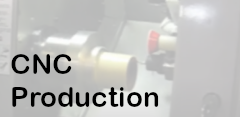Fluid Power Vehicle Challenge Halfway to Finish Line

The National Fluid Power Association’s Vehicle Challenge is a workforce development program for undergraduate students sponsored by industry leaders. Engineering students compete with one another to transform a traditional bicycle using fluid power. No chains, no gears, just fluid power. Students work in teams to design and build a fluid power system using only hydraulics as the mode of power transmission.
For the Midway Review, teams spoke with judges about their progress. The volunteer judges, including experienced fluid power engineers from around the industry, gave constructive feedback and advice on design objectives, vehicle designs, fluid power circuit designs, hardware, and more.
For the students, the review process gives much needed feedback on the quality of their system simulations and analyses. Most importantly, students come away with a better understanding of the viability of their fluid system plan and whether it will effectively complete their project goals and objectives from overall system layout to the safety and efficacy of individual components chosen.
At a minimum, teams are typically required to include…
· An accumulator for storing energy
· An electronic control system for the vehicle
· Regeneration technology
The Midway Review represents a switch from experimentation to construction as student teams are expected to move into full prototyping and testing before the upcoming Final Competition taking place from April 10th to April 14th at Danfoss in Ames, Iowa.
The Final Competition is made up of three races: the sprint race; the efficiency challenge; and the endurance challenge. Each event requires that students demonstrate a key ability of their newly transformed fluid power vehicle.
· The Sprint Race demonstrates the ability of the vehicle to move a distance where the weight of the vehicle is proportional to the human propulsion.
· The Efficiency Challenge demonstrates the ability of the vehicle to effectively store and most efficiently use the smallest amount of stored energy to propel the unassisted vehicle the greatest distance proportional to the vehicle’s weight.
· The Endurance Challenge demonstrates the reliability, safety, replicability, and durability of the fluid power system design and assembly.
If you are interested in learning more about the Vehicle Challenge, the National Fluid Power Association produced an introductory video. Sound difficult? It’s no walk in the park. For many students, this competition is their first experience designing and building a fluid power system.
“Listening to these experienced engineers provide immediate feedback to the students truly demonstrates the educational value of this program. The students are designing and building a fluid power system – many for the first time. It is clear that they appreciate the insights and instructions from the judges, especially when they have forgotten to include essential elements like pressure relief valves or a safe way to drain pressurized fluid out of their accumulators,” said NFPA President and CEO Eric Lanke. “It’s truly fluid power education in action!”
The ultimate goal of the Vehicle Challenge is “to create an environment that results in uncommon connections and breakthroughs, while supporting learning and the growth of fluid power industry knowledge.” The competition is but one of many outreach projects undertaken by the association and individual members of the industry to encourage teaching, learning, and adoption of fluid power education standards in universities and colleges across the nation (and world).
By design, senior year capstone courses easily integrate with the outlay of the Vehicle Challenge competition. Students partaking in the challenge are exposed to countless, exclusive opportunities to network with industry professionals. The competition encourages universities to participate within the context of a capstone course, but it is not a requirement. Student teams working outside capstone requirements are also welcome to participate in the fluid power challenge.









